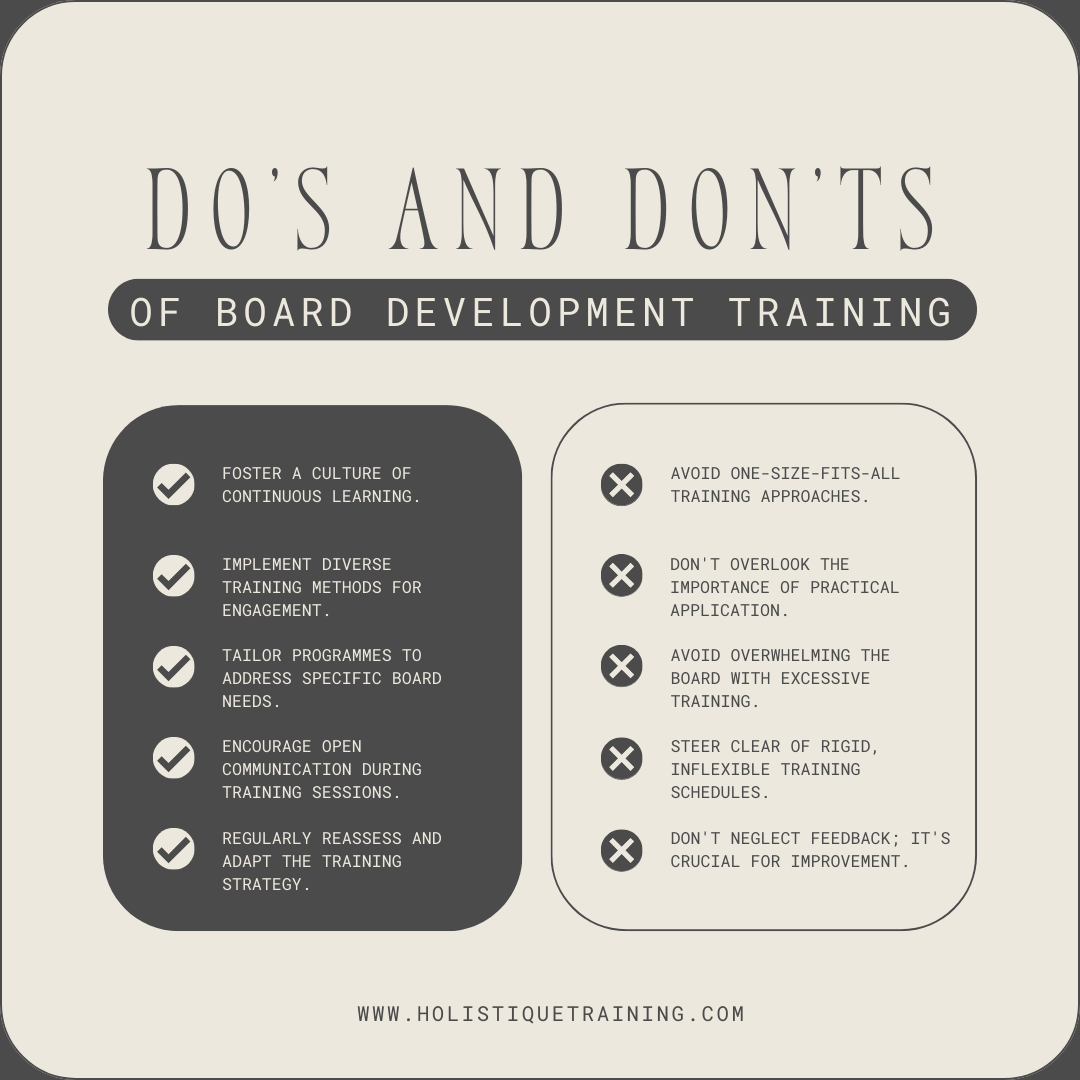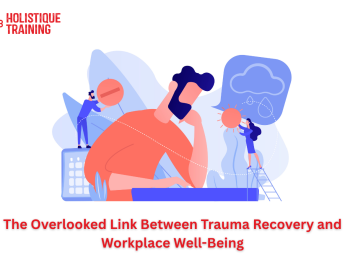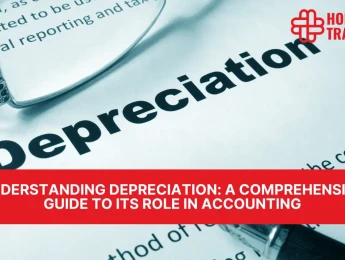- Table of Contents
- Introduction
- What Is a Board of Directors?
- Why Do You Need a Board of Directors?
- Diverse Expertise
- Fiduciary Responsibility
- Oversight and Transparency
- Strategic Guidance
- Stakeholder Representation
- Risk Management
- Strategic Decision-Making
- Understanding Board Development
- 10 Reasons Why You Should Invest in Board Development
- 1. Enhanced Decision-Making
- 2. Strategic Vision
- 3. Risk Mitigation
- 4. Stakeholder Confidence
- 5. Adaptability
- 6. Succession Planning
- 7. Cohesive Team Dynamics
- 8. Compliance and Ethics
- 9. Resource Mobilisation
- 10. Organisational Reputation
- Statistics on Board Development Training
- Optimising Board of Directors Development: 7 Essential Steps
- 1. Assessment
- 2. Strategic Recruitment
- 3. Orientation and Onboarding
- 4. Continuous Training
- 5. Performance Evaluation
- 6. Succession Planning
- 7. Feedback Mechanisms
- Challenges of Board Development Training
- Resistance to Change
- Time Constraints
- Financial Resources
- Board Diversity
- Engagement and Participation
- Striking the Right Balance
- Measuring Impact
- Training the Board on Technological Advancements: How Does It Help Your Company?
- Informed Decision-Making
- Strategic Planning
- Cybersecurity Resilience
- Operational Efficiency
- Digital Transformation Leadership
- Data-Driven Decision-Making
- Global Connectivity
- Customer Experience Enhancement
- Compliance with Regulatory Tech (RegTech)
- Agility and Innovation
- Conclusion
Introduction
In the dynamic realm of corporate governance, the Board of Directors stands as a cornerstone, steering organisations toward success and ensuring they navigate the intricate waters of business with precision and foresight. However, the effectiveness of a board is not a given; it requires careful cultivation through a strategic and ongoing process known as Board Development. In this comprehensive guide, we will delve into the intricacies of Board Development, exploring what a Board of Directors is, why it is indispensable, and how investing in its development can reap substantial benefits for your organisation.
What Is a Board of Directors?
A Board of Directors is a collective of individuals elected or appointed to oversee the activities of a company or nonprofit organisation. It serves as the highest governing authority, making crucial decisions, providing guidance, and ensuring that the organisation aligns with its mission and objectives.
Why Do You Need a Board of Directors?
In the complex tapestry of organisational governance, the Board of Directors emerges as a linchpin, playing a pivotal role in the success and sustainability of any company or nonprofit entity. The question, then, is not merely why organisations have boards, but why they unequivocally need them. Let's unravel the layers of significance woven into the fabric of a Board of Directors.
Diverse Expertise
A singular perspective seldom propels an organisation to greatness. Boards amalgamate a mosaic of skills, experiences, and insights, creating a collective wisdom that surpasses the sum of individual contributions. From finance to marketing, legal affairs to technology, a diverse board brings a spectrum of expertise to the decision-making table, enriching the organisation's strategic vision.
Fiduciary Responsibility
At its core, a board acts as a fiduciary, entrusted with safeguarding the interests of stakeholders. This responsibility extends beyond the financial realm to include ethical conduct, ensuring that the organisation adheres to its mission and values. The board's fiduciary duty establishes a framework for accountability, creating a checks-and-balances system that upholds the integrity of the organisation.
Oversight and Transparency
The board serves as the vigilant guardian of organisational activities, offering oversight to executive management. This oversight is not intended to stifle innovation but to ensure that decisions align with the organisation's mission and are in the best interest of stakeholders. Additionally, the board fosters transparency by scrutinising financial reports, operational strategies, and compliance with legal and ethical standards.
Strategic Guidance
In the labyrinth of business, strategic navigation is paramount. Boards provide the compass, guiding the organisation toward its long-term goals. By lending their strategic acumen, board members contribute to the formulation of policies, setting the trajectory for sustainable growth and competitive advantage.
Stakeholder Representation
Boards are conduits of communication between various stakeholders - shareholders, employees, customers, and the community at large. Their decisions reverberate beyond the boardroom, influencing the lives and perceptions of those connected to the organisation. A well-constituted board ensures that diverse perspectives are considered, promoting inclusivity and equitable representation.
Risk Management
In an ever-evolving business landscape fraught with uncertainties, effective risk management is paramount. Boards assess potential risks, formulate risk mitigation strategies, and monitor their implementation. This proactive approach not only safeguards the organisation from unforeseen challenges but also positions it to seize opportunities emerging from a dynamic environment.
Strategic Decision-Making
Board decisions are not just about the present; they shape the future trajectory of the organisation. By fostering an environment of robust discussion and informed decision-making, boards contribute to the resilience and adaptability of the organisation. This forward-thinking approach enables organisations to navigate change, capitalise on emerging trends, and remain competitive.
In essence, the necessity of a Board of Directors transcends conventional governance structures. It is an embodiment of strategic acumen, ethical stewardship, and the collective intellect of individuals committed to steering the organisation toward excellence. As organisations grapple with the complexities of the modern business landscape, the indispensability of a well-constituted board becomes increasingly evident—a beacon guiding the way to sustainable success.
Understanding Board Development
Board Development is a proactive and intentional process aimed at enhancing the effectiveness of the Board of Directors. It encompasses various facets, from selecting the right individuals for board positions to providing ongoing training and development opportunities. It is not a one-time event but a continuous journey that adapts to the evolving needs of the organisation and its board.
10 Reasons Why You Should Invest in Board Development
Board Development is not an expense; it's an invaluable investment that pays dividends in the form of enhanced governance, strategic foresight, and organisational resilience. As per a Bersin by Deloitte survey, as cited byStewart Leadership, leaders with robust development are eleven times likelier to cultivate strategically competitive talent for the future. That being said, let's delve into the compelling reasons why committing resources to the continuous improvement of your Board of Directors is a strategic imperative:
1. Enhanced Decision-Making
A well-developed board is a crucible for robust decision-making. Investing in board development ensures that your board members are equipped with diverse skills, experiences, and a deep understanding of your organisation's nuances. This diversity fosters insightful discussions and ultimately leads to well-informed, strategic decisions.
2. Strategic Vision
Boards are the custodians of an organisation's strategic vision. Through development initiatives, boards can stay attuned to industry trends, emerging technologies, and global shifts, enabling them to shape a forward-looking vision that aligns with the organisation's long-term goals.
3. Risk Mitigation
A developed board is proactive in identifying, assessing, and mitigating risks. Investing in board development ensures that your directors are well-versed in risk management strategies, allowing your organisation to navigate uncertainties with agility and resilience.
4. Stakeholder Confidence
Stakeholders, be they investors, employees, or the community, entrust the board with the responsibility of steering the organisation ethically and transparently. A well-developed board inspires confidence, reinforcing the trust of stakeholders and bolstering the organisation's reputation.
5. Adaptability
In a business landscape characterised by rapid change, adaptability is a competitive advantage. Board development programmes equip directors with the skills to navigate change, fostering an organisational culture that embraces innovation and responds adeptly to evolving challenges.
6. Succession Planning
Effective board development includes grooming the next generation of leaders. By investing in programmes that identify and nurture potential leaders within the board, organisations ensure a seamless transition when key positions need to be filled, preventing disruptions to strategic initiatives.
7. Cohesive Team Dynamics
A board is only as effective as its collaborative dynamics. Board development initiatives focus on building a culture of open communication, mutual respect, and shared objectives. This, in turn, enhances the cohesiveness of the board, facilitating more effective collaboration.
8. Compliance and Ethics
Staying abreast of evolving legal and ethical standards is crucial for organisational integrity. Board development includes training on compliance matters, ensuring that the board is well-informed and capable of steering the organisation ethically within the boundaries of the law.
9. Resource Mobilisation
Nonprofits and corporations alike benefit from boards skilled in resource mobilisation. Development initiatives equip board members with the knowledge and strategies needed for successful fundraising, financial stewardship, and optimal resource allocation.
10. Organisational Reputation
The reputation of an organisation is intricately tied to the effectiveness of its board. Investing in board development not only enhances the capabilities of the board but also contributes to an organisation's positive image. A well-developed board attracts top talent, investors, and partners, bolstering the organisation's standing in the industry.
In essence, board development is a strategic imperative that catalyses organisational success. It transforms the board from a passive governing body into an active force that propels the organisation toward innovation, ethical leadership, and enduring success. As you invest in the development of your board, you're not just enriching the capabilities of individuals; you're fortifying the foundation upon which your organisation's future prosperity rests.
Statistics on Board Development Training
In the extensiveMarch 2018 McKinsey Global Survey involving more than 1,100 board directors, findings revealed a concerning trend in director training. Specifically, fewer than a quarter of respondents indicated that new directors received adequate induction training to effectively fulfill their roles. Moreover, a mere 20% of the surveyed directors reported ongoing opportunities for board education, pointing to a significant gap in continuous learning within the directorial landscape.
Optimising Board of Directors Development: 7 Essential Steps
Elevating the effectiveness of a Board of Directors involves more than occasional training sessions or sporadic recruitment efforts. It's an ongoing, strategic process known as Board Development. Here are seven key steps to ensure that your Board of Directors evolves into a cohesive, dynamic, and forward-thinking governing body:
1. Assessment
Initiate the board development journey with a comprehensive assessment. Evaluate the current composition of the board, considering skills, expertise, and diversity. Identify strengths and weaknesses, understanding the unique challenges and opportunities your organisation faces. This assessment serves as the foundation for tailored development strategies.
2. Strategic Recruitment
Building an effective board starts with strategic recruitment. Identify gaps in skills and experiences through the assessment process and seek individuals who complement existing strengths. Aim for diversity, not just in demographics but also in professional backgrounds and perspectives. A well-rounded board is better equipped to tackle the multifaceted challenges of governance.
3. Orientation and Onboarding
Once new members are identified, invest in a robust orientation and onboarding process. Familiarise them with the organisation's mission, values, and strategic objectives. Provide insight into the organisational culture and the roles and responsibilities of board members. A thoughtful onboarding process sets the stage for effective and engaged board participation.
4. Continuous Training
Board development is an ongoing process that demands continuous training. Implement a structuredtraining program covering various aspects of governance, including financial literacy, industry-specific knowledge, and emerging trends. This ensures that board members remain well-informed and adept at addressing the evolving challenges of the organisation.
5. Performance Evaluation
Regularly assess the performance of both individual board members and the board as a whole. Establish clear criteria for evaluation, encompassing aspects such as attendance, contribution to discussions, and adherence to ethical standards. Transparent performance evaluations foster accountability and provide insights into areas that may require additional development efforts.
6. Succession Planning
Acknowledge the transient nature of board membership and proactively engage in succession planning. Identify potential leaders within the board and provide them with opportunities for mentorship and skill development. This ensures a seamless transition when leadership changes occur, preventing disruptions to strategic initiatives.
7. Feedback Mechanisms
Create an environment that encourages open communication and feedback. Establish mechanisms for board members to share their insights, concerns, and suggestions. Regular feedback sessions contribute to a culture of continuous improvement, allowing the board to adapt and refine its approach based on collective insights.
Incorporating these seven key steps into your board development strategy transforms the board into a dynamic and responsive entity. It's not merely about addressing immediate needs but about fostering a culture of continuous improvement, adaptability, and strategic foresight. Through these steps, your Board of Directors becomes not just a governing body but a cohesive team driving the organisation toward sustained success and resilience.

Challenges of Board Development Training
While the benefits of board development are substantial, the journey is not without its challenges. Nurturing an effective Board of Directors requires addressing these hurdles strategically to ensure that training initiatives yield optimal results.
Resistance to Change
One of the primary challenges in board development is resistance to change. Established boards may be accustomed to certain practices and may resist new methodologies or structural adjustments. Overcoming this resistance demands effective communication about the necessity of change, emphasising the long-term benefits for both individual board members and the organisation.
Time Constraints
According to EY, nearly half of directors feel their boards inadequately prioritise time for director education, with 49% expressing this concern. A supposed reason behind this would be that board members are often individuals with demanding professional and personal commitments. Finding time for comprehensive training programmes can be challenging. To tackle this, board development initiatives should be designed with flexibility in mind, incorporating both in-person and virtual training opportunities to accommodate diverse schedules.
Financial Resources
Investing in board development requires financial resources, and organisations may face budget constraints. Balancing the need for comprehensive training with fiscal responsibility is crucial. Leveraging a mix of cost-effective training methods, such as online courses and peer-to-peer learning, can help organisations overcome financial challenges.
Board Diversity
Ensuring diversity within the board, both in terms of demographics and skill sets, is an ongoing challenge. Recruitment efforts may face resistance or encounter difficulties in identifying suitable candidates. Overcoming this challenge involves implementing proactive recruitment strategies, fostering a culture of inclusivity, and emphasising the value that diverse perspectives bring to the board.
Engagement and Participation
Effective board development relies on the active engagement and participation of all members. Some board members may be more reluctant to participate in training initiatives, viewing them as time-consuming or unnecessary. Creating a culture that values continuous learning, highlighting the relevance of training to individual roles, and recognising and rewarding participation can mitigate this challenge.
Striking the Right Balance
Achieving the right balance in board development is a delicate task. Too much training can lead to fatigue, while too little can result in an inadequately equipped board. Striking the right balance involves aligning training initiatives with the specific needs of the organisation and regularly reassessing and adjusting the training programme as the organisation evolves.
Measuring Impact
Quantifying the impact of board development initiatives can be challenging. Determining the direct correlation between training efforts and improved board performance requires robust evaluation mechanisms. Organisations must establish key performance indicators, solicit feedback from board members, and continuously refine their training strategies based on measurable outcomes.
Addressing these challenges requires a strategic and adaptive approach. Recognising that board development is not a one-size-fits-all endeavour, organisations must tailor their strategies to the unique dynamics of their boards, fostering a culture of continuous improvement and a shared commitment to the organisation's mission. Overcoming these challenges transforms board development from a potential obstacle into a catalyst for organisational excellence.
Table 1: Key Performance Indicators (KPIs) for board development success
KPI | Description |
Decision-Making Impact | Assess the tangible influence on strategic decisions. |
Diversity Integration | Measure progress in fostering diversity within the board. |
Adaptability Enhancement | Evaluate the board's ability to adapt to change. |
Stakeholder Confidence | Gauge the level of trust and confidence from stakeholders. |
Strategic Vision Alignment | Ensure alignment with long-term organisational objectives. |
Training the Board on Technological Advancements: How Does It Help Your Company?
In the fast-paced digital landscape of the 21st century, organisations can either adapt and thrive or risk becoming obsolete. Now more than ever, boards of directors need to be well-versed in technological advancements to steer their companies toward sustainable success. Here's why training the board on technological advancements is not just beneficial but imperative for the modern organisation:
Informed Decision-Making
Technological literacy empowers board members to make informed decisions. Understanding the implications of emerging technologies allows the board to assess the risks and rewards associated with technological investments, ensuring that decisions align with the organisation's strategic objectives.
Strategic Planning
Training the board on technological advancements contributes to strategic planning. Boards equipped with insights into cutting-edge technologies can identify opportunities for innovation, stay ahead of industry trends, and craft long-term strategies that leverage technology for sustained competitive advantage.
Cybersecurity Resilience
As cyber threats become increasingly sophisticated, boards must prioritise cybersecurity. Training ensures that board members are well-versed in cybersecurity best practices, enabling them to assess and mitigate risks effectively and safeguard the organisation's digital assets.
Operational Efficiency
Technology has the potential to streamline operations and enhance efficiency. Training the board on technological tools and systems equips them to evaluate and implement solutions that optimise workflows, reduce costs, and improve overall organisational performance.
Digital Transformation Leadership
Boards play a pivotal role in guiding organisations through digital transformation. Training ensures that board members understand the nuances of digital transformation, can champion change within the organisation, and lead initiatives that harness technology for strategic growth.
Data-Driven Decision-Making
In the era of big data, organisations have access to vast amounts of information. Training the board on technological advancements includes understanding data analytics, enabling board members to makedata-driven decisions that enhance organisational efficiency and competitiveness.
Global Connectivity
Technology has made the world more interconnected than ever. Training the board on technological advancements enables them to leverage digital platforms for global collaboration, market expansion, and understanding the cultural and market nuances that impact international operations.
Customer Experience Enhancement
Technological proficiency allows boards to prioritise customer experience. Understanding customer expectations in the digital realm enables the board to guide the organisation in delivering innovative and seamless experiences that meet the evolving needs of the customer base.
Compliance with Regulatory Tech (RegTech)
As regulatory landscapes evolve, organisations must navigate compliance challenges. Training the board on regulatory technology (RegTech) ensures they understand how technology can facilitate compliance, manage regulatory risks, and uphold ethical standards in an increasingly regulated business environment.
Agility and Innovation
Technologically savvy boards foster a culture of agility and innovation within the organisation. By embracing new technologies, boards encourage a mindset of continuous improvement, experimentation, and adaptation, positioning the organisation as a dynamic player in its industry.
In short, training the board on technological advancements is an investment in future-proofing your organisation. Beyond just staying current, it positions the board as strategic leaders capable of harnessing the transformative power of technology for sustained success. As organisations embark on the journey of technological evolution, a tech-savvy board becomes not only a necessity but a driving force behind innovation, adaptability, and enduring prosperity.
Conclusion
The journey of board development is a vital investment that pays dividends in organisational success, sustainability, and resilience. By understanding the intricacies of board development, recognising its importance, and navigating the challenges with strategic solutions, organisations can cultivate a board that is not only effective but also adaptive to the ever-evolving landscape of business. As we embark on this journey of nurturing excellence, the board becomes not just a governing body but a driving force propelling organisations toward a future of innovation, ethical leadership, and enduring success.

























